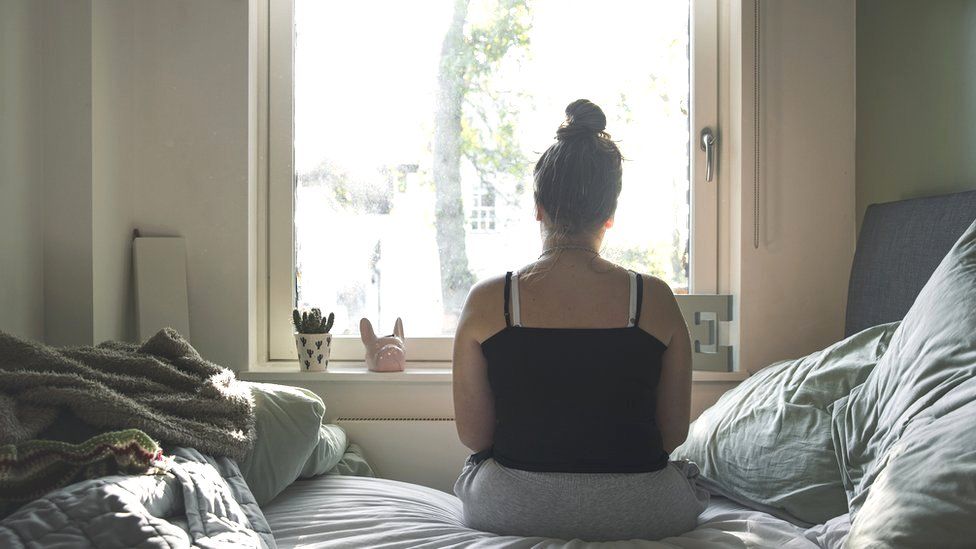
An increase in younger people claiming disability benefits is being driven by a "staggering" rise in mental health issues, a think tank says.
The Institute for Fiscal Studies (IFS) said there had been a striking increase in claim rates for working-age adults over the past decade.
The rise is particularly stark for adults in their 20s and 30s.
The figures have implications for public finances, as spending on disability benefits grows.
In a new report, the IFS found that while physical disabilities are continuing to increase with age, for younger age groups disabilities due to mental health conditions are rising.
Meanwhile, the proportion of 30-year-olds claiming disability benefits has risen from around 2% in 2002 to around 4% in 2022, with most of the increase happening in the past decade.
In contrast, the proportion of those 60 and over claiming disability benefits are almost the same as they were in 2002.
The main disability benefit for working-age adults is personal independence payment. Eligibility is unrelated to whether someone is able to work so many younger claimants may still be in employment.
Heidi Karjalainen, one of the authors of the report, said growing awareness and less stigma around mental health, meaning people are more likely to report suffering from poor mental health, was "part of the story" but "that doesn't mean it's not a problem".
She told the BBC mental health conditions had "a real life impact", including an increase in benefit claims and pressure on the NHS, as well as affecting people's ability to work and continue education.
The number of people not working in the UK due to long-term sickness has risen to record levels since the pandemic, with an increase in mental health issues in younger people partly blamed for the rise.
The government says getting people back to work is a key priority, with the issue contributing to worker shortages and the UK economy doing less well than other developed countries.
The IFS also found a large increase in the proportion of school-age children receiving disability benefits, mainly disability living allowance, from 2-3% in 2002 to 5-7% in 2022.
It said this was largely accounted for by increases in claims for learning disabilities, behavioural disorders and ADHD.
Ms Karjalainen said there was concern this could translate into lower education attainment and job prospects, with implications for efforts to get people into work and tackle inequality.
The IFS report found those with low levels of education were more likely to have a poor mental health or a disability and this was much more likely to result in them being unemployed.
At the age 30, the rate of disability is 8% for degree holders and 24% for those with no qualifications, the IFS said.
Nil Guzelgun, policy and campaigns manager for mental health charity Mind, said the pandemic and cost-of-living crisis had both contributed to a rise young people struggling to cope.
She said the charity was "deeply concerned" by the IFS findings.
Mind is calling for the government to overhaul the benefits system and do more to help people with mental health problems into work.
A government spokesman said: "We're investing an extra £2bn to help more people with disabilities and health conditions into work and grow the economy - with the latest figures showing inactivity has fallen by over 300,000 since the pandemic peak."
For those who cannot yet return to work, he said the government was also spending an extra £2.3bn a year by March 2024 to improve mental health services.
